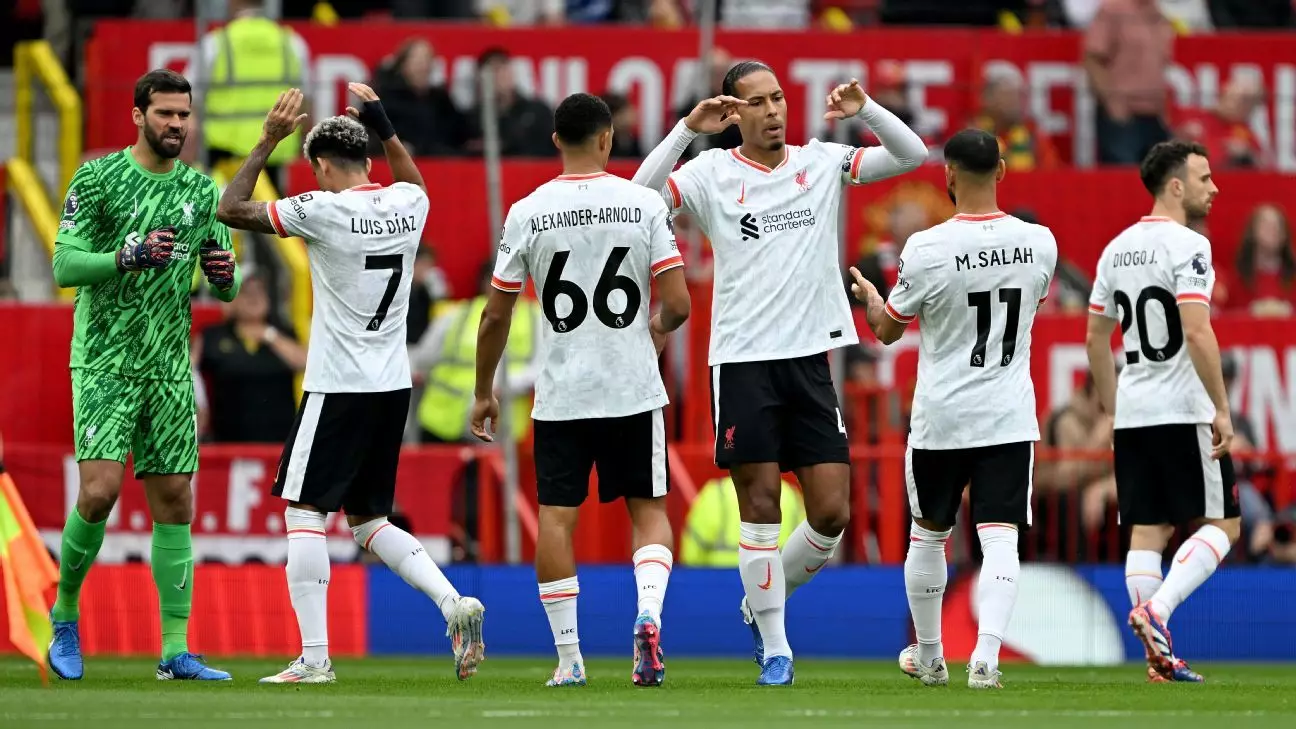As the clock ticks down to a potential disaster for Liverpool Football Club, the looming possibility of losing three of their key players—Mohamed Salah, Virgil van Dijk, and Trent Alexander-Arnold—without a single financial return grows increasingly real. The importance of these players to the team cannot be understated; however, the management’s delay in addressing contract extensions raises serious questions about the club’s long-term strategy and operational foresight.
Currently, the contracts of Salah, Van Dijk, and Alexander-Arnold will expire at the end of the season, allowing them to negotiate with foreign clubs starting January 1, 2025. Each player, while vital to the squad, occupies a different stage in their career, complicating the decision-making process for Liverpool’s management. Salah already has 32 years behind him, Van Dijk is at 33, while Alexander-Arnold, at just 25, is on the brink of his prime. The interdependence of their contracts presents a precarious balancing act for Liverpool’s hierarchy, further complicated by the players’ varying leverage in negotiations.
From Liverpool’s ownership perspective, there lies a palpable tension between past experiences and future risks. Previous contract sagas involving high-profile names such as Sadio Mané and Jordan Henderson have left the club wary. The organization’s tendency to offload aging stars before their value diminishes is now casting a long shadow over Salah and Van Dijk’s future at Anfield. While this may have proven prudent with past players, Salah and Van Dijk’s exceptional current form presents a dilemma: how to reward exceptional talent while safeguarding against potential decline?
The absence of concrete dialogue from the Liverpool boardroom regarding these contract negotiations has resulted in a growing sense of anxiety among supporters. With both Salah and Van Dijk speaking publicly about the lack of contract discussions, the unsettling atmosphere creates a breeding ground for speculation. Salah’s own comments post-match against Manchester United—expressing that the club had yet to approach him—only deepen the crisis. Such silence isn’t unusual in negotiations, but it risks cultivating an unsettling cloud over Liverpool’s season.
Meanwhile, Alexander-Arnold’s situation is brushed with a sense of irony. Being a homegrown talent and a lifelong supporter of the club, the expectation was that he would see a seamless transition into a long-term lucrative agreement, particularly given his youth. However, with uncertainty surrounding the futures of other key players, it’s reasonable to speculate that Liverpool may inadvertently mishandle this situation. If they prioritize Alexander-Arnold’s deal, variance in pay structures may spark discontent amongst Salah and Van Dijk; conversely, if the latter two are prioritized, Alexander-Arnold’s advisors may leverage their situation for better terms.
The critical analysis suggests that Liverpool’s management is playing a perilous game of poker. By allowing these contracts to dwindle to the final months, they are seemingly betting on their players’ loyalty and performance continuity—an incredibly high-stakes gamble. If any of the trio opt for free agency come next summer, the ramifications for Liverpool would be monumental. The potential loss of their pledge without compensation would be financially damaging and a logistical nightmare for team composition.
Moreover, historical precedents prompt further scrutiny. The legacy of players like Steve McManaman and Michael Owen, who left Liverpool after allowing their deals to run down, lingers heavily. Their departures cultivated resentment among fans, and reeling from past grievances certainly isn’t in the best interest of Liverpool’s current administration.
As the season progresses, Liverpool finds itself on a tightrope. The pressing concern over Salah, Van Dijk, and Alexander-Arnold highlights the urgency for concrete resolutions and decisive management. Failure to secure their futures could lead not only to the loss of high-caliber talent but also a shift in locker room dynamics as the uncertainty weighs heavily on morale.
The dynamic club must act swiftly to avoid slipping into a spiral of detrimental consequences, one that could potentially shatter the aspirations of supporters and undermine the team’s ambition. With only a handful of months to navigate this critical juncture, the road ahead remains increasingly fraught with challenges. A proactive approach to alleviating these tensions, through transparent communication and solid contract strategies, may well determine Liverpool’s fate as they aim for silverware while holding onto their most expressive talents for the coming seasons.


Leave a Reply